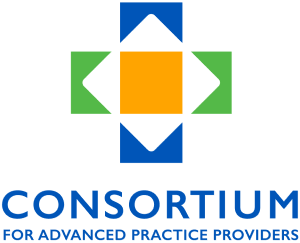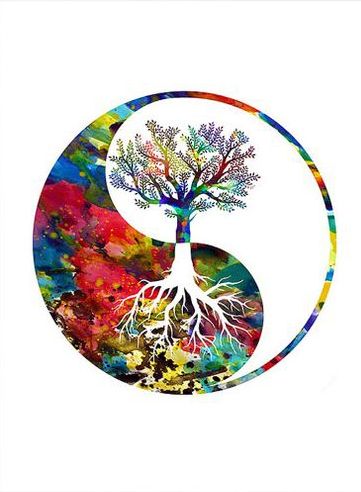Jeff Bezos, Amazon’s CEO, spoke at an Amazon employee awards dinner in Berlin, Germany. As captured by the May 2018 Business Insider, his speech included this tidbit:
“I get asked about work-life balance all the time. And my view is, that’s a debilitating phrase because it implies there’s a strict trade-off.”
Bezos said that the relationship between his work life and personal life isn’t compartmentalized into two competing entities. Instead of viewing work and life as a balancing act, Bezos said, it’s more productive to view them as two integrated parts. “It’s not a balance,” he said, “It actually is a circle.”
At the oddest moments, his comments resurface in my mind:
- I am in work-mode at my desk, glance out the window, and my focus shifts to a pair of mockingbirds fearlessly protecting their nest from rapacious crows;
- While mentoring a DNP student who is searching for equilibrium as she manages increasing work responsibilities with her devotion to her young family;
- In talking with volunteer site visitors as we tweak schedules to accommodate professional, organizational, and family commitments.
As novice practitioners enter full-time practice and as new grads enter their postgrad training, managing competing demands is essential. It is also stressful and exhausting.
How do we support novice practitioners during this complicated time in their lives? How do we help them as they try to create, or refine, a personal life during this intense and stressful period of professional training? There is no easy answer.
Each person has to find his or her strategy for integrating personal values with professional demands. A crucial role for program directors, faculty, preceptors, staff, and near-peers is to validate each trainee’s evolving professional identity in a way that allows him or her to incorporate personal values and interests. It is one of the many potential gifts of a training program – providing a variety of accessible models for how to be true to our multifaceted selves as professionals, as community members, and as individuals with personal lives.
It is a gift to see a preceptor being true to one’s self and “comfortable in one’s skin” as she works with a patient battling opioid addiction. Or to see a front desk staff member provide discrete, compassionate concern for a frantic mother with an ill newborn. Or to participate in a community charity event because the cause is important to a fellow trainee.
I’ve been finding myself dipping into books on philosophy, exploring concepts of wisdom and happiness. As I think about the task of being true to one’s self in every moment of one’s day, I believe it’s about being authentic in different settings with competing demands. Easier said than done, I know. Scholars in philosophy, psychology, religion, and epistemology continue to define and debate the nature of authenticity. One definition, from the Stanford Encyclopedia of Philosophy: “Heidegger emphasizes that being authentic presupposes that one instantiates such virtues as perseverance, integrity, clear-sightedness, flexibility, openness, and so forth.”
I am reminded of the famous quote from Plato’s Apology and attributed to Socrates: “an unexamined life is not worth living.” There are endless interpretations of Socrates’ statement. My completely non-scholarly interpretation is that one should strive to be mindful of what inspires us, what makes us happy, where our strengths and weaknesses lie, and then use that knowledge to live our lives fully.
Yet, one more reference to a philosopher. This time it is Epictetus, born a slave, educated in Rome, teacher and founder of Stoic philosophy. Epictetus believed that true happiness comes from “self-scrutiny applied with kindness,” as described by Marie Popova in her column about Sharon Lebell’s modern interpretation of his work: The Art of Living: The Classical Manual on Virtue, Happiness, and Effectiveness. Lebell captures the essence of contemporary authenticity and happiness:
“We need to regularly stop and take stock; to sit down and determine within ourselves which things are worth valuing and which things are not; which risks are worth the cost and which are not. Even the most confusing or hurtful aspects of life can be made more tolerable by clear seeing and by choice.
“True happiness is a verb. It’s the ongoing dynamic performance of worthy deeds. The flourishing life, whose foundation is virtuous intention, is something we continually improvise, and in doing so our souls mature. Our life has usefulness to ourselves and to the people we touch.
“Give your assent to that which promotes humaneness, justice, beneficial growth, kindness, possibility, and benefit to the human community.”
Paraphrasing additional comments from Jeff Bezos’ interview, he said that if you are happy at home it creates positive energy that overflows into work. And if you are happy at work, it overflows to home. Positive energy is generative – like the ripples that emanate from a pebble thrown in a pool of water, the impact of positive energy extends beyond the original interactions into the future.
Self-reflection promotes authenticity. Authenticity promotes happiness. Happiness is infectious, creating a circle of giving and living. And this is what breeds excellence and success.
Let’s celebrate the models who have inspired us, and in turn be models of self-scrutiny applied with kindness.
Wishing you health, balance, and self-kindness,
Candice


